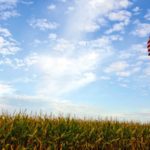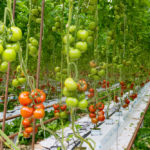1.
Tag Archives Environment

Cargill-led fund to pay U.S. farmers for carbon capture
Reuters – Global commodities trader Cargill Inc. starting this spring plans to pay American farmers for capturing carbon in their field soils and reducing fertilizer runoff, an executive said. The […] Read more

Award winners focus on managing cows and calves on pasture
Fresh water, grazing rotation followed by Mapleseed, TESA winners
Beef Farmers of Ontario hands out two awards for pasture and environmental management — and both usually end up with similarities and that was the case in 2020. Both the […] Read more

Biofuels expect hard hit with reduced travel
Gasoline consumption decline could mean lower corn prices
Glacier FarmMedia – COVID-19 is expected to bring trouble to the biofuel sector and that is already depressing corn and other grain prices. “Biofuel producers are under desperate strain,” Emily […] Read more

Farmer ready to cut woodlots to pay carbon tax
Government needs to pay for carbon sinks like woodlots and crops, he says
A Lambton County farmer, a winner of environmental awards, says he is ready to rip out his woodlots to help pay for carbon taxes on his farm. Joe Kerr, his […] Read more

The challenge of raising beef and dairy in a desert
Science Notes: Irrigation to feed crops for cattle in western U.S. drops river levels
Humans are using freshwater resources faster than they can be naturally replenished. In the western United States, for example, water extractions from the Colorado River have exceeded total river flow, […] Read more

Could Ontario agriculture be a carbon sink?
Professor says it could be done today – if enough imagination and will is employed
Could agriculture be a net-zero carbon emitter, or even a carbon sink? According to Vern Osborne, professor of animal biosciences at the University of Guelph, the answer is yes — […] Read more

Sandhill Cranes continue to cause damage
A resolution to allow seed treatments for control of Sandhill Cranes was passed at the Ontario Soil and Crop Improvement Association annual meeting. The cranes dig up seeds and other […] Read more

Carbon cost increases concern farmers
Farmers in Ontario felt the pain of a new carbon tax on grain drying in a tough year. But the real concern is when the carbon taxes continue to grow over the next two years
Ontario grain farmers spent more than $12 million to pay the federal carbon tax to dry their grain in 2019, mostly drying corn. Grain Farmers of Ontario calculated that the […] Read more

Farmers pitched as climate solution providers
A new organization aims to bring attention to farmers’ role in climate change mitigation
A coalition of farm groups has launched a new national movement to promote the idea of farmers being a part of creating Canadian climate change solutions. The group, called, Farmers […] Read more

NFU paper proposes climate, farm income solutions
Making less use of fertilizers as part of integrated operations is one recommendation
The global climate crisis is interlinked with the financial crisis on Canadian farms, according to a new discussion paper from the National Farmers Union, which proposes changes that it said […] Read more

